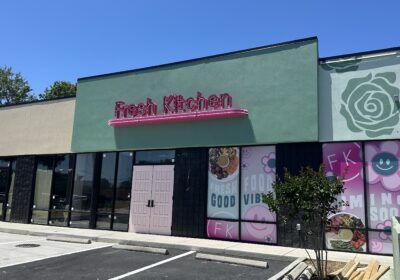‘Nabka’ event explores Palestinian history
Through his tears and sobs, Hammad Suleyman, a former Arabic professor at USF, pleaded with the audience to allow him and his family to return to their home in what is now Jerusalem.
Suleyman’s speech was part of the Students for Justice in Palestine’s (SJP) commemoration of the Palestinian “Nabka,” the Arabic word for “catastrophe,” most commonly used by Palestinians to describe the exile of Palestinians from Israel in 1948.
“It is not my intention to come up here and cry,” Suleyman said. “What I want is for you to do something about this (Israeli-Palestinian) conflict.”
Suleyman spoke about his life in rural Palestine prior to 1948, including the day his village was first attacked by Israelis.
“And one night, while we were out playing, we started hearing shots above our heads, and at first we thought they were birds. We thought, ‘Why do they shoot at us? We are peaceful people, we are not used to fighting. We don’t even have guns!”
Malak Fakhoury, vice president of SJP and a freshman majoring in psychology, said Tuesday’s event in the Marshall Student Center was held to remember the struggle of the Palestinian refugees and to promote awareness of their ongoing struggle.
“We really want to make other people aware that this is a systematic ethnic cleansing against a particular type of people and how people should be aware of what happened as well as what continues to go on,” Fakhoury said.
Following a brief documentary, which centered around an interview with the oldest woman in the Palestinian refugee camp in Colombia, USF Hebrew professor Orly Noy spoke to the 130 attendees about what she called the two “secondary victims” in the Israeli- Palestinian conflict. Noy, a non- Muslim Israeli citizen, spoke out against unfair treatment of Arabic Jews.
“Unlike the Palestinians, the Misrahi Jews have no home to go back to,” Noy said. The other of the two “secondary victims” was the impact of European Zionists on the Jewish religion.
“Zionism is not Judaism,” Noy said. “I think the Judaism that developed in Israel after these circumstances and over the past 65 years has actually twisted or injected something very foreign into Judaism which has to do with xenophobia, hatred and racism.”
Some Jewish students on campus found the premises of the event offensive. In an emailed statement to The Oracle, Brandon Schuster, on behalf of Hillels of the Florida Suncoast, an on-campus Jewish student organization, said the United Nations split the territory into two states, and that it was the Arabs’ choice to leave Israel and to declare war on the Jewish people.
“This event had the overtone that accused Israelis and Jews of forcefully removing Arabs living in Jewish territories by force and inhumane ways of ‘ethnic cleansing.’ However, this is not true whatsoever,” the statement said.
Ashley Stanton, a sophomore majoring in music performance, said she attended the event because she wanted to learn more about the Palestinians’ plight.
Stanton said she believes that at the very least people need to be aware of the conflict and how it is affecting other peoples’ lives.
“History tends to cover up things and make things very, ‘Oh, we don’t want to think about this so we’ll hide this away,’ but it’s very interesting to me to find out these things that the history books never tell you and you never find out
because people want to make this out to be this rose-colored world, and it’s really not,” she said.
In addition to being called “Palestinian Nabka,” the event was also referred to as “Holy Land Holocaust” on Facebook advertisements.
Some members of the Jewish community at USF were offended by the perceived comparison between the Jewish Holocaust and the Israeli/Palestinian conflict. At the close of the event, Fakhoury apologized for what she said was a misnomer.






